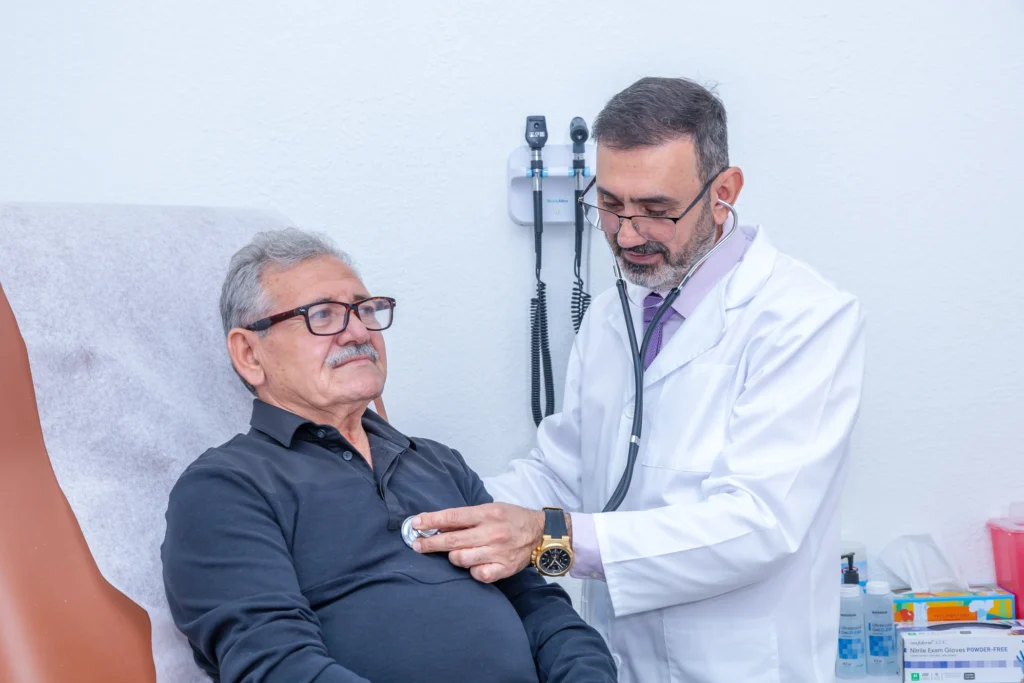The Link Between Well-Woman Exams and Cancer Prevention
Are you wondering how a simple check-up can actually help prevent cancer?
We get it! Many women think a well-woman exam is just about reproductive health, but it’s much more than that. It’s a powerful tool in catching potential problems early, which can make a huge difference in cancer prevention and treatment. So, let’s dive into how these exams can be a game-changer for your health.
Why Are Well-Woman Exams Important for Cancer Prevention?
Well-woman exams are designed to assess your overall health and screen for potential issues, including various types of cancer.
Here’s how they contribute to cancer prevention:
- Early Detection: Many cancers are easier to treat when caught early. Regular exams allow us to identify abnormalities before they become serious.
- Screening Tests: These exams often include screening tests like Pap smears to detect cervical cancer and breast exams to check for breast cancer.
- Risk Assessment: We evaluate your personal and family history to assess your risk for certain cancers and recommend appropriate screening schedules.
- Lifestyle Counseling: We provide guidance on healthy habits like diet, exercise, and smoking cessation, which can significantly reduce your cancer risk.
Key Components of a Well-Woman Exam for Cancer Screening
A well-woman exam is a comprehensive health assessment.
Here’s what it typically includes, focusing on cancer prevention:
Pap Smear and HPV Testing
This test screens for cervical cancer and Human Papillomavirus (HPV), a common virus that can lead to cervical cancer.
It’s a crucial part of preventative care. Learn more about Pap smears here.
Clinical Breast Exam
A physical examination of your breasts by a healthcare provider.
While it’s not a replacement for mammograms, it can help detect lumps or abnormalities. For more information about breast exams, click here.
Mammogram Recommendations
Based on your age, family history, and risk factors, we’ll provide recommendations for mammogram screenings.
Early detection is key in treating breast cancer. Be sure to read this post on well-woman exams for women over 40.
Pelvic Exam
This exam can help identify abnormalities in your reproductive organs, including ovarian and uterine cancer.
It’s a comprehensive assessment of your pelvic health.
Discussion of Symptoms and Concerns
This is your opportunity to discuss any unusual symptoms or concerns you may have, such as abnormal bleeding, pelvic pain, or changes in your breasts.
Don’t hesitate to bring up anything that worries you! It’s easier than you think to talk to your doctor about sensitive issues!
Risk Assessment and Counseling
We’ll evaluate your personal and family history to assess your risk for various cancers and provide personalized recommendations for screening and prevention.
Understanding your risk is the first step in taking control of your health. If you have symptoms you are worried about, read about symptoms to discuss at your next well-woman exam.
Specific Cancers Addressed During Well-Woman Exams
Well-woman exams are particularly effective in screening for these cancers:
- Cervical Cancer: Through Pap smears and HPV testing.
- Breast Cancer: Through clinical breast exams and mammogram recommendations.
- Ovarian Cancer: Although there’s no standard screening test, pelvic exams and symptom discussions can help detect potential issues.
- Uterine Cancer: By discussing symptoms like abnormal bleeding and performing pelvic exams.
Who Should Get a Well-Woman Exam?
The American College of Obstetricians and Gynecologists (ACOG) recommends that women begin receiving well-woman exams in their early teens.
The frequency of these exams depends on your age, health history, and risk factors. Find out how often you should get a well-woman exam!
What if Something Is Found During My Exam?
If we find something concerning during your exam, don’t panic!
It doesn’t necessarily mean you have cancer. We’ll conduct further testing to determine the cause and develop an appropriate treatment plan. Read What If Something Is Found During My Well-Woman Exam?
FAQs About Well-Woman Exams and Cancer Prevention
Got questions?
We’ve got answers! Here are some common questions we hear at Dr. A Patient Care in Spring, TX 77379:
How often should I get a well-woman exam?
The frequency depends on your age and health history.
Generally, annual exams are recommended, but we’ll tailor the schedule to your specific needs.
Is a pelvic exam necessary at every visit?
Not always.
The need for a pelvic exam depends on your age, symptoms, and risk factors. We’ll discuss this with you during your appointment.
Are well-woman exams covered by insurance?
Most insurance plans cover preventive services like well-woman exams.
However, it’s always a good idea to check with your insurance provider to confirm your coverage. Learn more about well-woman exam costs and insurance coverage.
What can I expect during my first well-woman exam?
Your first exam will involve a discussion of your health history, a physical exam, and possibly a pelvic exam and Pap smear.
We’ll make sure you’re comfortable and answer any questions you have. Read more about what to expect at your first appointment.
Taking Proactive Steps for Your Health
Regular well-woman exams are a vital part of staying healthy and preventing cancer.
By scheduling these exams, you’re taking a proactive approach to your well-being.
Schedule Your Well-Woman Exam Today!
Don’t wait – your health is worth it!
Contact us at Dr. A Patient Care in Spring, TX 77379, to schedule your well-woman exam today. Let us help you stay healthy and cancer-free. Prioritizing your health with regular well-woman exams is a smart move towards effective cancer prevention.
Book Your Next Appointment Below
Located on 5523 Louetta Rd STE C, Spring, TX 77379, our detailed assessment ensures that all your medical needs are addressed.
Not Sure What You Need?
Visit Our Location

